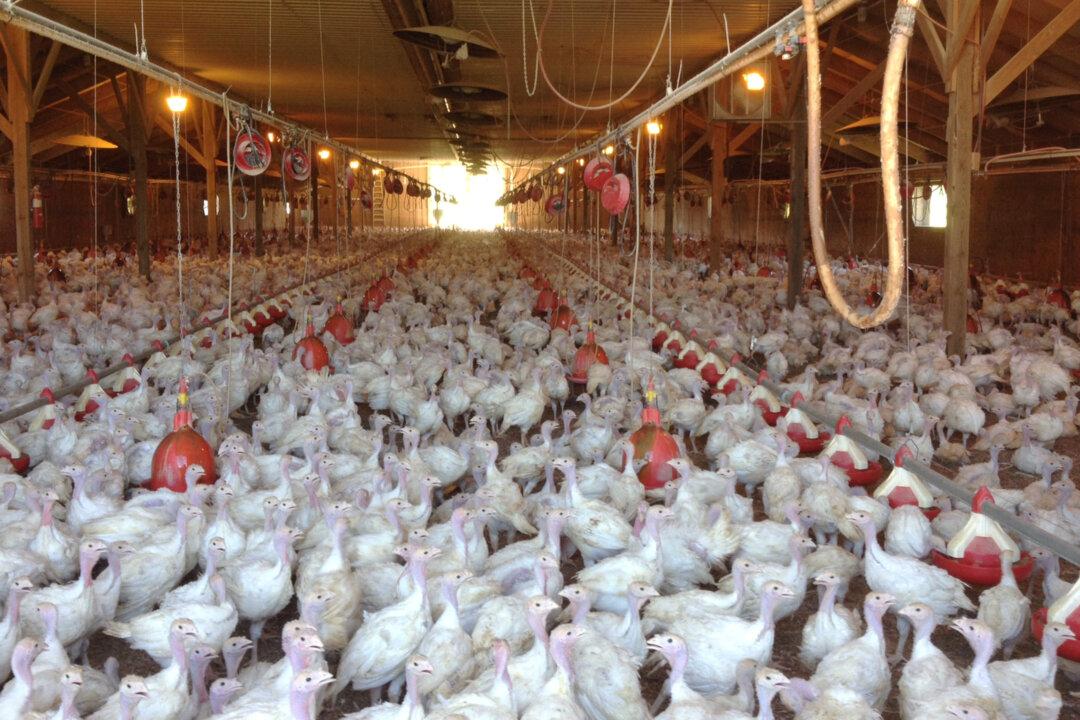Two farms in Iowa have been hit by the highly pathogenic bird flu, causing about 100,000 birds to be killed to keep the disease from spreading.
The latest cases were at a commercial turkey flock in Pocahontas County and at a mixed species backyard flock in Guthrie County, the Iowa Department of Agriculture confirmed Oct. 23. This comes after an outbreak was reported last week in Buena Vista County.




